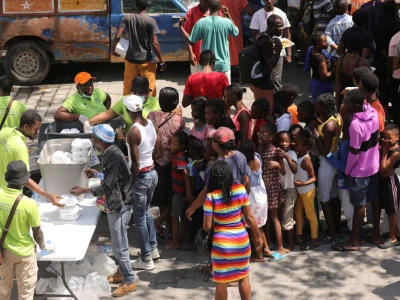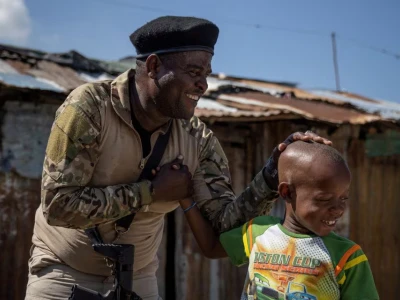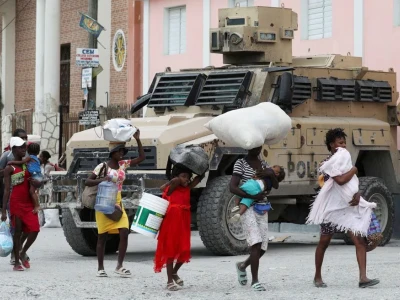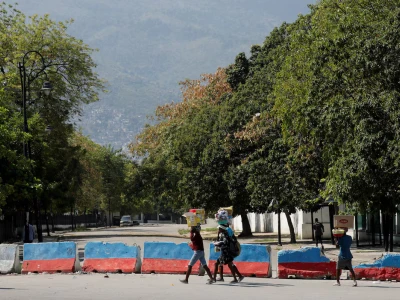
Haiti gang wars now 'cataclysmic' in key farmlands -UN report
"The much-needed multinational security support mission needs to be deployed to Haiti as soon as possible."
Nov 28 (Reuters) - Haiti's brutal gang wars have spread from the capital to key farming heartlands, displacing tens of thousands of people and having a devastating impact on access to food staples, the United Nations said in a report on Tuesday.
U.N. High Commissioner for Human Rights Volker Turk said long-awaited international security assistance - requested by Haiti's unelected government a year ago and authorized by the U.N. last month - should be deployed "as soon as possible".
00:06Underequipped firefighters try to hold back wildfires in BoliviaThe video player is currently playing an ad. You can skip the ad in 5 sec with a mouse or keyboard
Violence has gradually escalated in the Bas-Artibonite region north of the capital, the source of staples such as rice, with the U.N. documenting some 22,000 displaced amid murders, looting, kidnappings and widespread sexual violence.
The region's most powerful gangs are allied to members of the capital's powerful G-Pep alliance, the report found, saying this indicates a strategy on the part of G-Pep to extend its influence.
Armed with semi-automatic rifles and pistols, gangs have burned houses, attacked irrigation systems, stolen crops and livestock and demanded "taxes" for farmers to access fields, it said.
Kidnappings and torture for ransom are also frequent, it said. Initially focused on transport routes, the U.N. said gangs are now increasingly attacking residential neighborhoods and abducting people en masse, as well as carrying out gang rapes of women and even young children.
The violence has severely limited humanitarian access to the area, leaving support for victims of sexual violence to cash-strapped rural associations. Victims rarely come forward, the report said, due to fear of reprisals and mistrust of police.
The insecurity and dwindling funds have caused aid groups to halt operations and slash budgets while the U.N.'s food agency estimates nearly half the country is going hungry, including over 45% of people in Bas-Artibonite.
Turk said the situation was "cataclysmic" and reiterated calls for the international force, more state action, wider sanctions and stronger controls on arms believed to be largely trafficked from the United States.
"We are continuing to receive reports of killings, sexual violence, displacement and other violence – including in hospitals," he said.
"The much-needed multinational security support mission needs to be deployed to Haiti as soon as possible."




